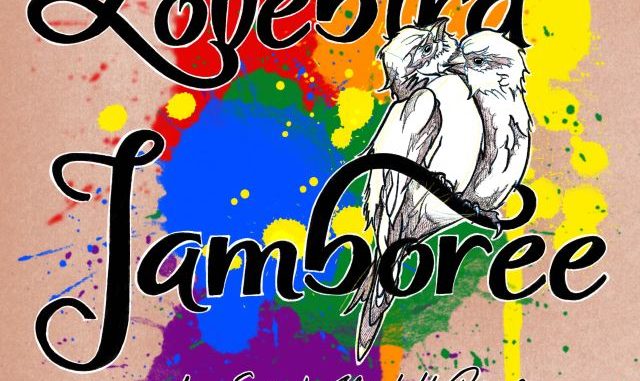
Review Fix chats with playwright Sarah Elisabeth Brown, who discusses her production “Lovebird Jamboree.â€
About the Production:
Tuesday 7/9 8:30 pm; Friday 7/12 9:00 pm; Saturday 7/13 2:00 pm (70′) New York Premiere
Stories of validating your existence and expressing your love … before the new millennium.
As the recent century turned, gay marriage was still a dream and there were those out there fighting for equality and simply the right to love. Author Sarah Elisabeth Brown met with eight individuals doing just that. These are their stories. Based on a series of interviews from people in the LGBTQI community, eight very different characters present their defining love stories. Gym junkies, sex workers, academics, softball jocks, and wannabe Jell-O salad aficionados – all get their say in this heartfelt, funny set of monologues. Supported by a story-collecting grant from the Santa Fe Community Foundation, the work premiered at Theaterwork in New Mexico in 2000. Lovebird Jamboree bring this powerful depiction of a moment in recent history and shows us how far we’ve come and far we still have yet to go. The play asks the questions, “how do you find love when the traditional pathways aren’t open to you†or “how does a person reinvent love under those circumstances? Staring us in the face is another question: “What is family, and how can I create one that fits for me?â€
Review Fix: What was the inspiration for this project?
Sarah Elisabeth Brown: At the time, I was the playwright-In-Residence at Theaterwork in Santa Fe, New Mexico where I had discovered the power of story-collecting projects. The artistic director, David Olson, and I had just created a successful play based on people’s key stories with mental health issues. On the heels of that, we received another grant from the Santa Fe Community Foundation for similar project for pride 2000. So a commission was the literal impetus. The deeper inspiration for me comes from the desire to give voice to people. I am someone who understands the soul-killing pain of being silenced. Story-sharing is a way to break stigma and open a new conversation. That was something I wanted to give to my community. I’ve always found it’s harder to judge someone when you know their story. In that sense story-sharing can be a kind of political action.
Review Fix: What’s your creative process like?
Brown: I’m an intuitive writer as well as a collaborative one. Not in the sense that I write with others, but that I love working with actors, directors and the creative team. I usually start my writing day with morning pages and work from there. I like to work from a space of free-writing until I’m warmed up and I feel a certain knowing kick in about the next right path. I find if I over-think or over outline things don’t get done. I work with a writing coach and I do a lot of readings and workshopping with actors so the work comes forward in community for me. When I was at Hampshire College, an inventive place for people who want to forge their own path, I created a major called, Playwrighting: An Off the Desk Approach. At that time, I was exploring ways to use movement, images or collaborations with actors to approach the work. I came to playwrighting from acting, so working on my feet has always been important for my writing, as opposed to someone who say, sits down to write a novel.
Review Fix: What makes this different or special from other events of this genre?
Brown: The interviews. When I can come from a place of being a true listener, unique and powerful voices are able to come through in a pure form. The purity of the characters voices is what makes this piece such a gem. It has an authenticity of the different voices is what I find exquisite.
Review Fix: What did you learn/are you learning about yourself through this process?
Brown: I think that the queer community has a lot to teach the world about celebration, self-expression, and what relationships can be. I am learning that what’s important for me is to do work that is about inclusion, acceptance, and a world where we can explore many ways to love. I suppose in the parlance of today I would be considered pansexual, although twenty years ago, it still felt traitorous to be bisexual. Doing it now, twenty years after it was written, makes it become about a snapshot in time that depicts how things have changed and how far we still have to go. This process of sharing Lovebird Jamboreehas made me reflect on how the queer community has used celebration as a kind of political action. The power of that in retrospect is seeing how many people are now willing to join the party.
Review Fix: What are your ultimate goals for this for the future?
Brown: Given that it’s a fairly simple show to put forth. I would like to see it used as an educational tool in colleges and universities where people are figuring out that there are different relationship narratives out there. I feel the piece could be used like the Vagina Monologues was, as something that many communities could read and perform as a conversation starter.
Review Fix: What’s next?
Brown: I always have about three or four projects going at once. A showcase of my short plays will be presented by this same team in December of this year.


Leave a Reply